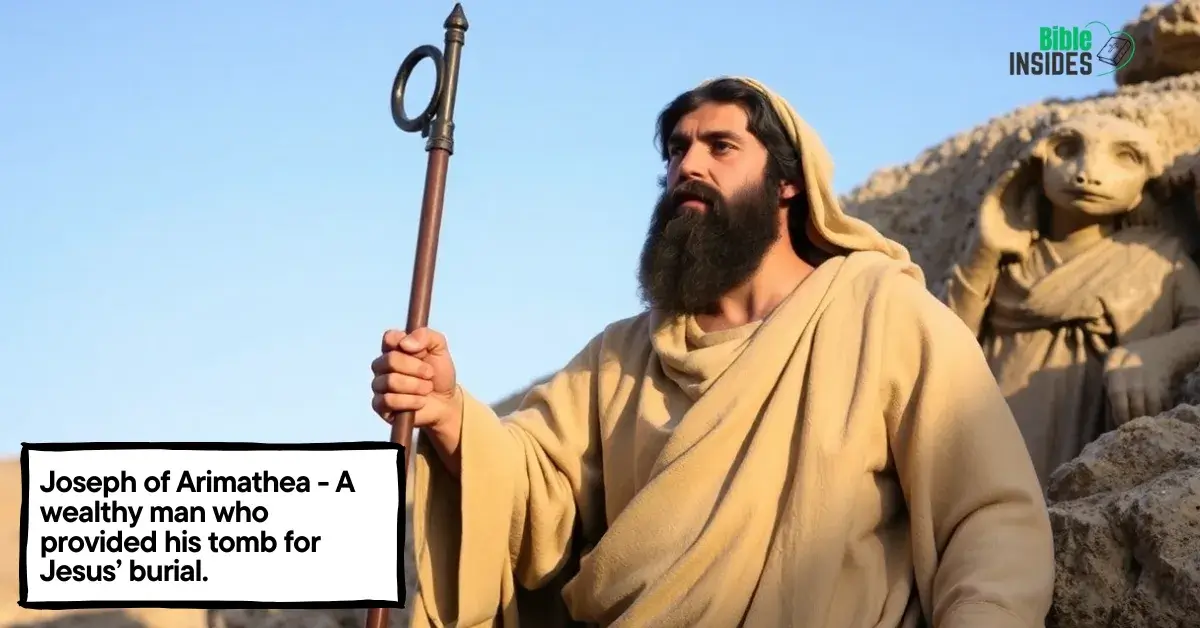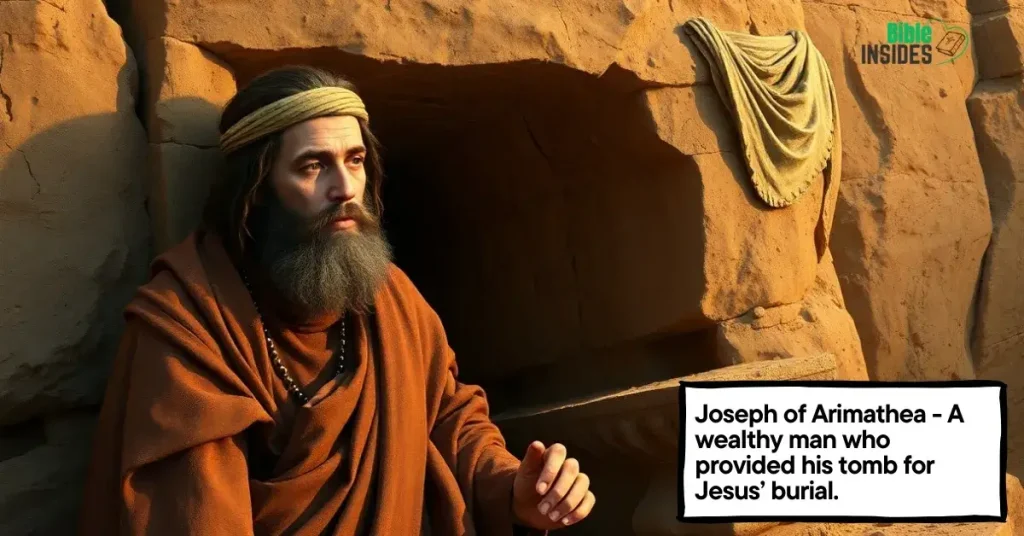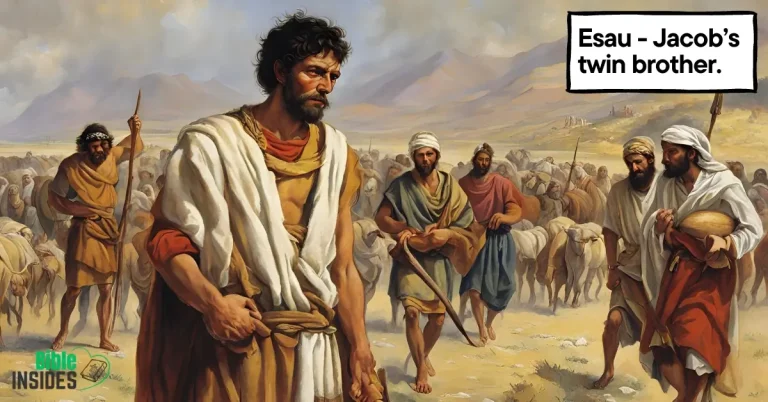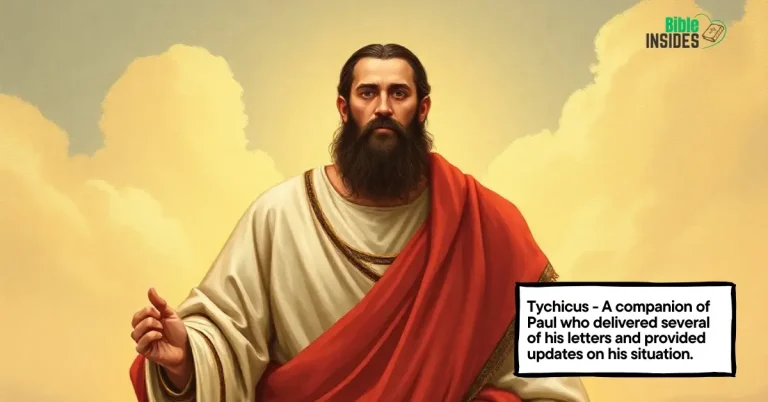Joseph of Arimathea: The Wealthy Benefactor of Jesus’ Burial

Joseph of Arimathea was a Biblical character who performed a significant part in the funeral of Jesus Christ. His description can be demonstrated in each of the four Gospel; Matthew, Mark, John and Luke. He is proclaimed “Joseph of Arimathea” due to he came from the Judean region of Arimathea. (Luke 23:51)
Joseph was literally a part of Sanhedrin, the group of Jewish spiritual leaders who proclaimed for Jesus Crucifixion. Joseph was a rich man, through the origin of his wealth is unspecified. (Matthew 27:57) The Holy scripture mentioned Joseph a “good and upright man (Luke 23:50) After Jesus’ death on the cross, Joseph at highly danger to himself and his prestige, went to the Roman governor Pilate to appeal Jesus’ body.
Nicodemus, the Pharisee assisted Joseph, their preference to place Jesus in Joseph’s tomb accomplished Isaiah’s prophecy stated hundreds of years prior to Jesus’ death;
“He was charged a grave with the immoral and with the rich in his death, though he had done no brutality, nor was any deception in his mouth” (Isaiah 53:9)
The next day after Jesus’ burial, the main priests and Pharisee went to Pilate to appeal that the stone Joseph had positioned before the tomb be fastened and a guard posted for three days. They alluded Jesus’ declaration that He would uplift after three days and professed the apostles might try to steal the body due to forge a resurrection. (Matthew 27:63) Their anticipation were for useless while Jesus rose from dead on the third day, same as He had declared. (Matthew 28) Some profess that Joseph of Arimathea was the uncle of Jesus’ mother Mary. Joseph of Arimathea was a wealthy man and member of Sanhedrin and he acquired Jesus’ body and laid it in his own tomb from which Jesus would revival in power three days afterwards.
Joseph of Arimathea in the Bible Verses
Joseph of Arimathea mentioned in various verses:
“While it was evening, there came a rich man from Arimathea, named Joseph, who also was a disciple of Jesus” (Matthew 27:57)
“After these things Joseph of Arimathea, who was a student of Jesus, although privately for terror of the Jews,inquired Pilate that he might take away the body of Jesus and Pilate alloted him consent. So he came and took away his body. Nicodemus also, who preliminary had come to Jesus by night, came bringing a blend of myrrh and aloe regarding seventy-five pounds in weight. Thus they took the body of Jesus and bound it in linen cloths with the spices, as is the burial ceremony of the Jews. Now in the place where he was crucified there was a garden and in the garden a new tomb in which no one had so far been laid. Hence, due to the Jewish day of Preparation, since the tomb was close at hand, they laid Jesus there” (John 19:38-42)
“Since it was the day of Preparation and thus that the bodies would not remain on the cross on the Sabbath, the Jews inquired Pilate that their legs might be cracked and that they might be taken away” (John 19:31)
Joseph of Arimathea According to the Scripture

Joseph of Arimathea is referred in all four Gospels of the New Testament. He is depicted as a wealthy and a prestigious member of Jewish council, assumed to be the Sanhedrin, greatest sacred court in ancient Judaism. He appealed to the Pilate and granting the tomb are assumed acts of courage and honor toward Jesus. Additionally, He provided his own new Tomb for Jesus’ burial. His actions complete the prophecy of Isaiah 53:9, which predicts that the Messiah would be buried with the wealthy. Eventually, the vacant tomb, which was safely closed and protected, become the main proof for the resurrection of Jesus.
Joseph’s Role
Joseph is the good man who had been looking for God and had become the apostle of Jesus but not openly due to he was “frightened of the Jews”. (John 19:38)
However, after Jesus’ death, Joseph went bravely infront of Pilate to inquire for Jesus’ body, therefore recognizing openly with him. Joseph owned a tomb that had been currently prepared by being displace of a rock and jointly, they laid the body of Jesus there, spinning a massive stone beyond the entrance. On the third day after burial, a woman revisited to the tomb to observe the stone receding and angles proclaiming Jesus’ resurrection.
Significance of Joseph’s Action

The period of Jesus’ crucifixion coerced importance for the students seeking to bury him. When he died, it was about the Sabbath and nearly the Passover. Joseph employed his impact with the authorities, his possession and his recent bravery in recognizing as an apostle of Jesus to make sharp perspective or decision for the sake to lay Jesus’ body to rest in an efficiently manners.
Frequently Asked Questions
Conclusion
Joseph was a member of the Sanhedrin, who were confronted to Christ although he held believe in Jesus and became an apostle. Joseph was a rich and pious man who went to Pilate to inquire about Jesus’ body after his death. He did this to avoided the body from hanging on the cross overnight and to give Jesus a respectable burial.






